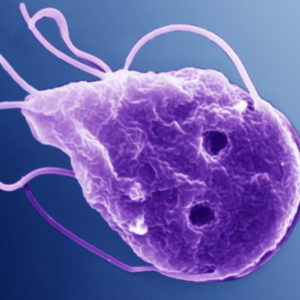Working with Parasite Database Resources (Bandar Sunway, Malaysia)
28 October–2 November 2018
Monash University, Bandar Sunway, Malaysia
Summary
In collaboration with Monash University Malaysia, we are pleased to announce the latest Overseas Course in Working with Parasite Database Resources.
This week-long course aims to provide experimental biologists working on eukaryotic pathogens with hands-on experience in genomic-scale data analysis; including genome browsers and comparison tools, primary data analysis, methods for data integration and resources for sophisticated data mining (including the EuPathDB search strategy system).
Examples and exercises will be drawn primarily from the EuPathDB.org and GeneDB.org resources focusing on eukaryotic parasitic organisms including Apicomplexa (ie. Plasmodium, Toxoplasma & Cryptosporidium) and Kinetoplastida (ie. Trypanosoma & Leishmania). Applicants working on any organism included in these resources will benefit.
The intensive programme will combine hands-on exercises with lectures and discussions on genomics and bioinformatics techniques, along with seminars from distinguished guest speakers.
The course is free to attend and open to research scientists and clinicians/healthcare professionals based in Asia and Australasia working on eukaryotic parasitic organisms. Additional limited bursaries are available to assist with travel and accommodation expenses.
Places are limited and the course will be taught in English.
Programme
The programme will include lecture, discussion and practical computational sessions covering the following topics:
- Visualisation of sequence features and next generation sequencing data using the Artemis genome browser and annotation tool
- Genome browsing and comparative genomics (ACT, J/GBrowse, SynView)
- Formulating complex biological queries in computationally accessible form
- Web-based resources including the GeneDB.org and EuPathDB.org family of databases
- Integrating functional genomics data (RNA-seq, ChIP-seq, ChIP-chip, microarrays, proteomics, etc) with genome sequence data
- Theoretical aspects of genome re-sequencing
- Querying genetic diversity on a genome-wide scale
- Metabolic pathways and pathway and GO enrichment analysis
- Working with next-generation sequence data (mapping, variant calling, RNA-Seq etc)
- An introduction to community curation tools
- Participants are encouraged to bring own data, to use in consultation and/or in-workshop analysis
- Learning outcomes
After attending this course, participants should be able to:
- Use state-of-the-art bioinformatics software including web-based resources as well as in a UNIX-like environment to explore parasite database resources.
- Identify opportunities and limitations of the different methodologies in analysing parasite parasite genomics data
- Apply software and web-based resources to visualise and analyse next generation sequencing datasets for parasitology research.
- Apply software and web-based services to browse genomes and to display genome comparisons.
- Integrate and query large-scale genomic and functional genomic databases to answer biology-related research questions and develop testable hypotheses
Instructors and speakers
The course will be taught by expert instructors representing the family of EuPathDB.org and GeneDB.org resources, in collaboration with regional guest instructors and speakers.
Course instructors
Ulrike Böhme
Wellcome Sanger Institute, UK
Kathryn Crouch
University of Glasgow, UK
Omar Harb
University of Pennsylvania, USA
Thomas Otto
University of Glasgow, UK
How to apply
Prerequisites
The course is open to research scientists and clinicians/healthcare professionals based in Asia and Australasia working on eukaryotic parasitic organisms.
How to Apply
Please complete the online application form. Places are limited and will be awarded on merit. If you have any problems with the online application process, please contact us.
Please note: Applications must be supported by a recommendation from a scientific or clinical sponsor (e.g. supervisor, line manager or head of department). A request for a supporting statement will be sent to your nominated sponsor automatically during the application process. Applicants must ensure that their sponsor provides this supporting statement by the application deadline. Applications without a supporting statement cannot be considered.
Cost
Cost
The course is subsidised by Wellcome Genome Campus Advanced Courses and Scientific Conferences and is free to attend for non-commercial applicants.
Please contact us for the commercial fee.
Bursaries
A limited number of bursaries are available for each course. These are awarded on merit to cover travel, accommodation and sustenance. The maximum award for travel (economy class) will be £750. If you would like to apply for a bursary, please complete the bursary section of the online application form.
Bursaries can be applied for as part of the course application form. Applicants will be notified of a bursary award along with their place on the course, usually within one month of the application deadline. The decision of the selection committee is final.
Please note that both the applicant and sponsor are required to provide a justification for the bursary as part of the application.
Testimonials
Reviews from previous courses:
“I wish to thank the organizers, instructors and keynote speakers for sharing their experience with us”
“These computational techniques gave me an insight on how you can see certain genes after alignment. l also learnt how l can compare my gene to a reference gene or sequence”
“The facilitators were great, patient and willing to help 100%”
“The strategy used for the teacher was brilliant. They instigated us to think about biological questions and understand how reach the results we were looking for”
“This is the first course in which I had the opportunity to interact the most with the course instructors and organizers. All of them have been really kind, helpful and honest in their answers.“

